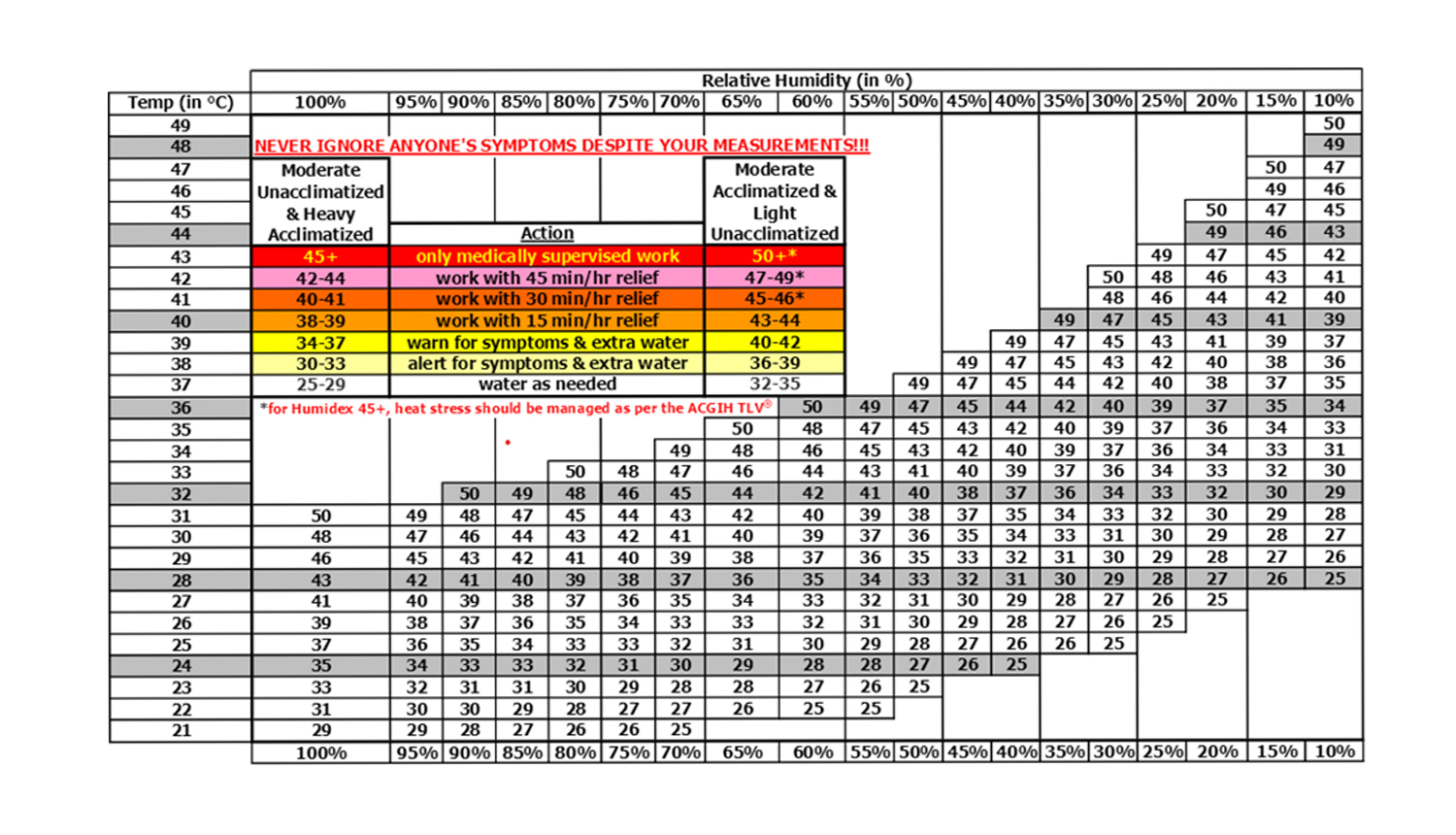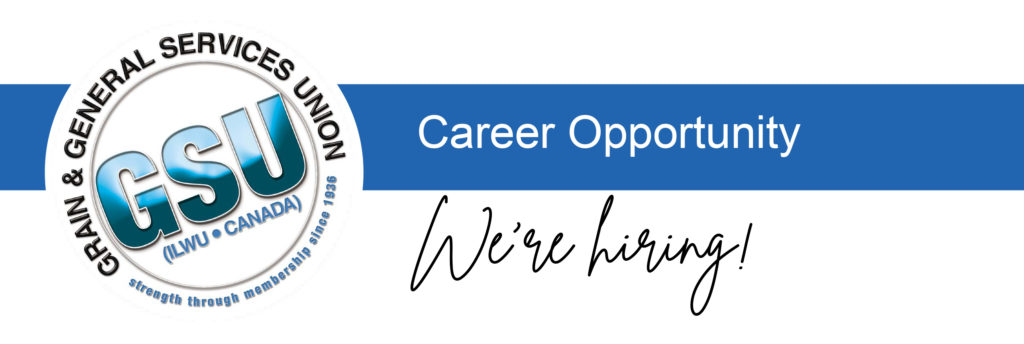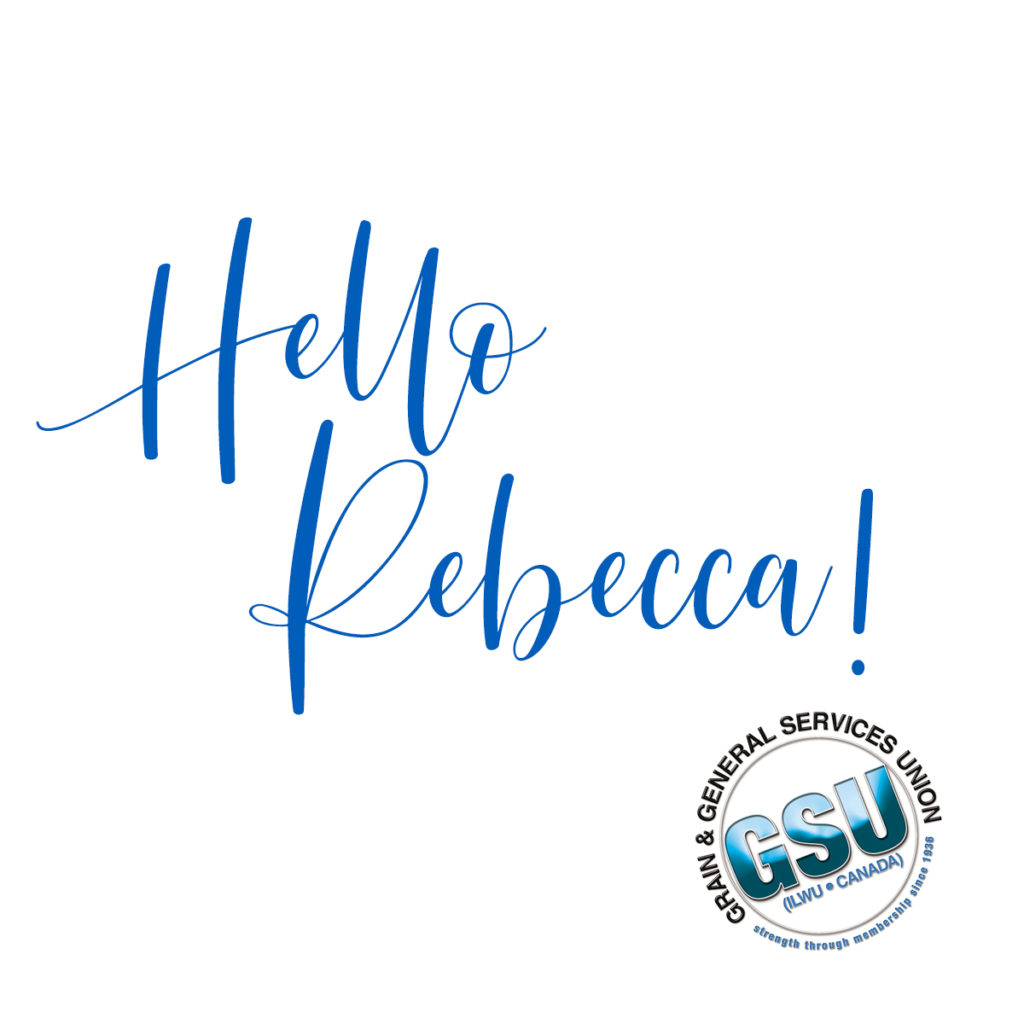Working in the heat and humidity can have serious consequences.
Working with high temperature is not limited to work outside. Working indoors near a heat source without adequate ventilation could also put you at risk for heat-related medical conditions. Whether you are outside or inside, the hotter and more humid your surroundings the more breaks you need to take.
There are different levels of risk when working in higher temperatures and they all have their own symptoms.
Heat rash
Heat rash and sunburn are the entry level medical concerns when working outside. A heat rash is often a cluster of small red bumps/blisters. They often form on the neck, chest, groin area or the creased in the elbow. The remedy is to stay in a cool dry place, keep the rash dry and use baby powder to sooth the rash.
Sunburn
We have all experienced a sunburn or know someone who has. Sunburns can range from a reddening of the skin to blisters. The area will be warm to the touch and can be extremely painful. If you do get burned stay out of the sun as much as possible and cover the skin if you have to work outside. Apply cool cloths or take a cool bath to help remove the heat. Once the skin is cooled down put on a moisturizing lotion and do not break open the blisters. Open sores can become infected and lead to different complications.
Heat exhaustion
Heat exhaustion symptoms include profuse sweating, cold, pale, clammy skin; a fast weak pulse, and often nausea or vomiting, muscle cramps, tiredness or weakness, dizziness, headache and even fainting spells. If you or someone you are observing exhibit these symptoms, move to a cool place out of the sun. Loosen tight clothing (untuck shirt, undo a couple of buttons, loosen belt and boots) and use cool cloths or a cool bath to bring down body temperature. Sip water but avoid drinking lots of water at once as it will add to the nausea feelings. You should seek medical attention if you vomit, symptoms get worse or last longer than an hour.
Heat Stroke
Heat stroke is the most serious condition from working in high temperature areas. The body will be exhibiting fever like symptoms. A body temperature of 103 degrees or higher. Skin is hot, red, and damp to dry. You stop sweating and exhibit a fast strong pulse. Headache, dizziness, nausea, confusion, and fainting spells. If you experience these symptoms immediately call 911. Move the person to a cooler place and try to lower the temperature with cool cloths or a cool bath. Do not give them anything to drink the body will not accept it in this condition and the person will vomit.
Use these tips to keep yourself safe:
- Put on clothing to keep the skin covered.
- Use a high-SPF sunscreen on any exposed areas and wear a hat to help shield your body and head from the sun.
- Drink lots of cool or room temperature water to keep hydrated. Ice cold water may cause stomach cramps and coffee will increase internal body temperature so neither are a preferred choice of fluids during heat exposure.
- Alcohol and sugary drinks are also not a wise choice as they are diuretics and increase dehydration.
- Take breaks away from the heat, preferably in the shade or inside an air-conditioned building.
Click the table below to see a larger-size Canada OH&S table regarding high temperature work and humidity rating.







